|
Books Should Be Free Loyal Books Free Public Domain Audiobooks & eBook Downloads |
|
|
Books Should Be Free Loyal Books Free Public Domain Audiobooks & eBook Downloads |
|
Dramatic Works |
|---|
|
Book type:
Sort by:
View by:
|
By: Edward Sheldon (1886-1946) | |
|---|---|
 Boss
Boss
The Boss centers on the relationship between Michael Regan, an Irish-American businessman, and Emily Griswold, an outspoken American girl bent on saving her father's business. Set during a time when unions fought for wages and bosses fought for more stake in their company, the play's relevance strikes at the heart of economic issues and hardships in modern day America. | |
By: Eleanor H. Porter (1868-1920) | |
|---|---|
 Pollyanna Grows Up
Pollyanna Grows Up
Pollyanna, now cured of her crippling spinal injury, and able to walk again, goes to live in Boston with Mrs. Carew, a heart-broken woman searching for her lost nephew. Aunt Polly goes abroad with Pollyanna’s new Uncle, Dr. Chilton. While in Boston, Pollyanna meets new friends and has several interesting adventures… A startling change in Aunt Polly’s and Pollyanna’s circumstances require Pollyanna to come up with a workable solution. Pollyanna’s solution brings all her new friends from Boston and her old friends in Beldingsville together. Pollyanna also discovers she has to make a choice. Who will win her heart? | |
By: Eleanor Hallowell Abbott (1872-1958) | |
|---|---|
 Rainy Week (Dramatic Reading)
Rainy Week (Dramatic Reading)
Join this couple in their annual house party where the “guests” becoming unknowing “actors” in their beach house play “Rainy Week” . “To be indeed absolutely explicit experience has proved, with an almost chemical accuracy, that, quite regardless of "age, sex, or previous condition of servitude," this particular combination of Romantic Passion, Psychic Austerity, Tragedy, Ambition, Poignancy, Innocence, And Irritation, cannot be housed together for even one Rainy Week without producing drama!” Cast Narrator/Mrs... | |
By: Eliza Armstrong | |
|---|---|
 Teacup Club (Dramatic Reading)
Teacup Club (Dramatic Reading)
The Teacup Club is formed when Dorothy decides to found an intellectual club of her own - to teach her fiance a lesson! The club’s discussion topics includes Theosophy, Politics and Women in Legislature. The club’s unofficial topics include Emily’s new dress, man-flu and the great mystery of the missing chafing-dish. A witty drama and a comedy of manners, secrets and politics . - Summary by Elizabby Cast List: Cast Narrator: Beth Thomas Evelyn: Jennifer Fournier Emily: Leanne Yau Dorothy: KHand Frances: Beth Thomas Elise: Lydia Marion: Vicki Hibbins Catharine: Michele Eaton Edited by: Michele Eaton and linny Proof listeners: Michele Eaton, Beth Thomas | |
By: Elizabeth Barrett Browning (1806-1861) | |
|---|---|
 A Drama of Exile
A Drama of Exile
In writing her ‘Drama of Exile’, Barrett’s subject was ‘the new and strange experience of the fallen humanity, as it went forth from Paradise into the wilderness’. The bizarre, lyrical scenes that follow powerfully describe the grief and guilt of Eve, the sorrowful pride of Lucifer, and the redeeming power of love. | |
By: Elizabeth Klett (1867-1936) | |
|---|---|
 Six Characters in Search of an Author
Six Characters in Search of an Author
Six Characters in Search of an Author (Sei personaggi in cerca d’autore) is the most famous and celebrated play by the Italian writer Luigi Pirandello. Pirandello, in the preface to the play, says that whenever a reader opens Dante’s Inferno, Francesca will drift down from the dark wind in her circle of Hell and tell the Pilgrim her story; and it will always be for the first time – just as the Mother in Pirandello’s play at one point makes an agonizing cry, always for the first time. Each character sees events and the other characters differently... | |
By: Eugene O'Neill | |
|---|---|
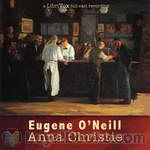 Anna Christie
Anna Christie
Eugene O'Neill's drama Anna Christie was first produced on Broadway in 1921 and received the Pulitzer Prize in 1922. It focuses on three main characters: Chris Christopherson, a Swedish captain of a coal barge and longtime seaman, his daughter Anna, who has grown up separated from her father on a Minnesota farm, and Mat Burke, an Irish stoker who works on steamships. At the beginning of the play Chris and Anna are reunited after fifteen years apart. Anna comes to live on her father's coal barge, but hides the secret of her past from him. When she meets Mat after an accident in the fog, they almost immediately fall in love - but Anna finds that forging a new future will not be easy. | |
 Beyond the Horizon
Beyond the Horizon
Beyond the Horizon is a 1920 play written by American playwright Eugene O'Neill. It was O'Neill's first full-length work, and the winner of the 1920 Pulitzer Prize for Drama. The play focuses on the portrait of a family, and particularly two brothers Andrew and Robert. In the first act of the play, Robert is about to go off to sea with their uncle Dick, a sea captain while Andrew looks forward to marrying his sweetheart Ruth and working on the family farm as he starts a family. | |
By: Euripides (480-406 BC) | |
|---|---|
 The Bacchae
The Bacchae
This tragedy is based on the mythological story of King Pentheus of Thebes and his mother Agave, and their punishment by the god Dionysus (who is Pentheus' cousin) for refusing to worship him. | |
 The Trojan Women
The Trojan Women
Euripides' play follows the fates of the women of Troy after their city has been sacked, their husbands killed, and as their remaining families are about to be taken away as slaves. However, it begins first with the gods Athena and Poseidon discussing ways to punish the Greek armies because they condoned Ajax the Lesser for dragging Cassandra away from Athena's temple. What follows shows how much the Trojan women have suffered as their grief is compounded when the Greeks dole out additional deaths and divide their shares of women. | |
 Medea
Medea
Euripides' tragedy focuses on the disintegration of the relationship between Jason, the hero who captured the Golden Fleece, and Medea, the sorceress who returned with him to Corinth and had two sons with him. As the play opens, Jason plans to marry the daughter of King Creon, and the lovesick Medea plots how to take her revenge. | |
By: F. Scott Fitzgerald | |
|---|---|
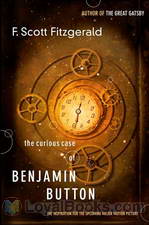 The Curious Case of Benjamin Button
The Curious Case of Benjamin Button
A life lived backwards, with events happening in reverse order forms the strange and unexpected framework of one of F Scott Fitzgerald's rare short stories. The Curious Case of Benjamin Button was published in Collier's in 1927 and the idea came to Fitzgerald apparently from a quote of Mark Twain's in which he regretted that the best part of life came at the beginning and the worst at the end. Fitzgerald's concept of using this notion and turning the normal sequence of life on its head resulted in this delightful, thought provoking fantasy tale... | |
By: Florence Holbrook (1860-1932) | |
|---|---|
 Dramatic Reader for Lower Grades
Dramatic Reader for Lower Grades
Despite the title's bland sounding name, this book is a charming collection of 16 plays for children. These little plays—well-known stories done into dialogue—were written for children who like to imagine themselves living with their favorite characters in forest, in palace, or in fairyland. Included are Cinderella, Robin Hood, William Tell, Hansel and Gretel and many more. | |
By: Frances Browne (1816-1879) | |
|---|---|
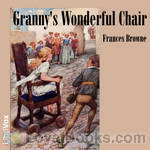 Granny's Wonderful Chair
Granny's Wonderful Chair
Her most famous work, Granny's Wonderful Chair, was published in 1856 and it is still in print to this day. It is a richly imaginative book of fairy stories and has been translated into many languages. This work, read as a child by Frances Hodgson Burnett, inspired the writings of Little Saint Elizabeth and Other Stories | |
By: Frances Moore Brooke (1724-1789) | |
|---|---|
 History of Emily Montague Vol 1 (Dramatic Reading)
History of Emily Montague Vol 1 (Dramatic Reading)
The novel takes place 10 years after the Battle of the Plains of Abraham in 1759 when Quebec becomes a British colony. Written as a collection of letters, the story follows the relationships between Edward Rivers (a British soldier), his friend, John Temple (rather a cad), Emily Montague (a young British woman), and her dearest friend, Arabella Fermor (a flirtatious drama queen). Giving glimpses into the new frontier discoveries of Canada, one not only peeks into the personal relationships of these characters but gets swept away by the enticing descriptions of the "new world." This is Volume 1 out of 4. | |
By: Francis Beaumont (1584-1616) | |
|---|---|
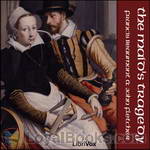 The Maid's Tragedy
The Maid's Tragedy
Beaumont and Fletcher's The Maid's Tragedy (first published 1619) is a sensational Jacobean sex tragedy. When gentleman soldier Melantius returns to Rhodes, he finds his dear friend Amintor is recently married - but not to his troth-plight love Aspatia (the maid of the title). Instead, the King has arranged a match between Amintor and Melantius' sister, the beautiful Evadne. On his wedding night, Amintor finds that his new wife has married him under false pretenses - and this unleashes a torrent of dire consequences, sexual, emotional, and ultimately political. | |
By: Francis William Bourdillon (1852-1921) | |
|---|---|
 Lost God
Lost God
The first-century scholar and historian Plutarch tells a strange tale of sailors at sea, who heard a mysterious voice proclaiming: "Pan is dead." This narrative poem tells the story of another Greek who sees the funeral of Pan in a vision and is launched on a quest to find the meaning of his vision. His journey eventually leads him all the way to Jerusalem and back, before he finds the answer he is searching for. - Summary by Devorah AllenLeander: MozartjrHelen: Krista ZaleskiPhilo: Larry WilsonPasserby: Kerry AdamsNarrator: Devorah Allen | |
By: Frank Wedekind | |
|---|---|
 The Awakening of Spring
The Awakening of Spring
The Awakening of Spring is the German dramatist Frank Wedekind's first major play and a seminal work in the modern history of theatre. It is the source material for the contemporary rock musical Spring Awakening. The play criticises the sexually-oppressive culture of fin de siècle Germany and offers a vivid dramatisation of the erotic fantasies that it breeds. Due to the nature of its content, the play has often been banned. | |
By: Frederick Arnold Kummer (1873-1943) | |
|---|---|
 Film of Fear
Film of Fear
(Written under the pseudonym, Arnold Fredericks.) Ruth Morton is a world-renowned film actress who seems to have it all: youth, beauty, wealth, and a viable career. But she soon becomes the target of a malicious stalker who begins sending her a series of cryptic threats. Dismissed at first, the stalker soon emerges as a legitimate -- and mysterious -- threat. She soon must call for the services of Richard and Grace Duvall, a husband and wife detective team who soon find themselves ensnared in a mystery where everyone soon becomes a target. | |
By: Friedrich Schiller (1759-1805) | |
|---|---|
 Mary Stuart
Mary Stuart
Schiller's tragedy depicts the final days of Mary, Queen of Scots, who has been imprisoned by her cousin, Queen Elizabeth I, because of her potential claim on the English throne. The action of the play revolves around an attempt to rescue Mary from prison and Elizabeth's indecision over whether or not to have her executed. The 1801 translation is by Joseph Mellish, a friend of Schiller's. | |
 Love and Intrigue
Love and Intrigue
Ferdinand is an army major and son of President von Walter, a high-ranking noble in a German duke's court, while Luise Miller is the daughter of a middle-class musician. The couple fall in love with each other, but both their fathers tell them to end their affair. The President instead wants to expand his own influence by marrying Ferdinand to Lady Milford, the duke's mistress, but Ferdinand rebels against his father's plan and tries to persuade Luise to elope with him. | |
 Camp of Wallenstein
Camp of Wallenstein
This is the first play of Friedrich Schiller's Wallenstein Trilogy. Set in a Bohemian camp during the Thirty Years War, it introduces the major characters of the rest of the trilogy, like Albrecht von Wallenstein and Max Piccolomini, from their subordinates' point of view. | |
By: Fyodor Dostoyevsky (1821-1881) | |
|---|---|
 Crime and Punishment
Crime and Punishment
A mysterious crime is being plotted in a tiny garret above a dilapidated apartment building in St Petersburg in Russia. The plotter, Rodion Raskolinikov, is a poor student who has delusions of ridding the world of “worthless vermin” and counter balancing these crimes with good deeds. He commits a murder to test his own theories and prove that crime comes naturally to the human species. Crime and Punishment is a path-breaking novel of ideas that changed the course of novel writing in the 20th century... | |
By: George Bernard Shaw (1856-1950) | |
|---|---|
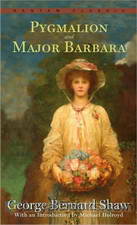 Pygmalion
Pygmalion
If you've watched and loved the delightful musical My Fair Lady, then you'd love to read the wonderful play on which it is based. Pygmalion by George Bernard Shaw is equally engrossing and as full of charm, wit and underlying pathos. First performed on stage in 1912, Pygmalion takes its title from the Greek myth of Pygmalion and Galatea. In the ancient story, a brilliant sculptor, Pygmalion falls in love with one of his own creations, a ravishingly beautiful sculpture whom he names Galatea. He propitiates Aphrodite, who grants his wish that his statue would come to life and that he could marry her... | |
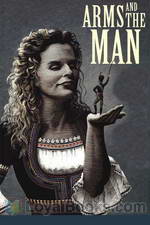 Arms and the Man
Arms and the Man
Arms and the Man is a comedy by George Bernard Shaw that takes place in 1885, during the Serbo-Bulgarian War. Raina Petkoff is engaged to the gallant Sergius Saranoff, hero of the recent Bulgarian victory over the Serbs. But she is distracted by the abrupt arrival of Captain Bluntschli, a Swiss mercenary who fought for the Serbian army. He takes refuge in her bedroom after the battle and although he is initially threatening, reveals that he carries chocolates instead of bullets. Will Raina marry the posturing Sergius or the chocolate cream soldier? Extra intrigue is provided by saucy servant girl Louka, her dour fiance Nicola, and Raina's hand-wringing parents. | |
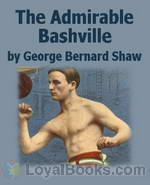 The Admirable Bashville
The Admirable Bashville
The Admirable Bashville is a product of the British law of copyright. As that law stands at present, the first person who patches up a stage version of a novel, however worthless and absurd that version may be, and has it read by himself and a few confederates to another confederate who has paid for admission in a hall licensed for theatrical performances, secures the stage rights of that novel, even as against the author himself; and the author must buy him out before he can touch his own work for the purposes of the stage... | |
 Mrs. Warren's Profession
Mrs. Warren's Profession
The story centers on the relationship between Mrs Kitty Warren, a rich woman, described by the author as "on the whole, a genial and fairly presentable old blackguard of a woman" and her daughter, Vivie. Mrs Warren is a middle-aged woman whose Cambridge-educated daughter, Vivie, is horrified to discover the morally questionable way her mother acquired her fortune. | |
 The Doctor's Dilemma
The Doctor's Dilemma
The Doctor's Dilemma is about Dr. Colenso Ridgeon, who has recently been knighted because of a miraculous new treatment he developed for tuberculosis. As his friends arrive to congratulate him on his success, he is visited by two figures who present him with a difficult decision. He has room for one more patient in his clinic; should he give it to Louis Dubedat, a brilliant but absolutely immoral artist, or Dr. Blenkinsop, a poor and rather ordinary physician who is a truly good person? Dr. Ridgeon's dilemma is heightened when he falls for Jennifer Dubedat, the artist's wife, who is innocent of her husband's profligacy. | |
 Candida
Candida
Candida, a comedy by playwright George Bernard Shaw, was first published in 1898, as part of his Plays Pleasant. The central characters are clergyman James Morell, his wife Candida and a youthful poet, Eugene Marchbanks, who tries to win Candida's affections. The play questions Victorian notions of love and marriage, asking what a woman really desires from her husband. The cleric is a Fabian Socialist, allowing Shaw—himself a Fabian—to weave political issues, current at the time, into the story. | |
 Major Barbara
Major Barbara
George Bernard Shaw's Major Barbara focuses on the family of aristocratic Lady Britomart Undershaft and her estranged husband Andrew, a millionaire armaments manufacturer. Their daughters Sarah and Barbara are both engaged to be married, and Lady Britomart decides to ask Andrew for monetary support. Barbara is a Major in the Salvation Army, and agrees to let her father visit the mission in the East End of London where she works. In exchange, she agrees to visit his munitions factory. The conflict between Barbara's philanthropic idealism and her father's hard-headed capitalism clash when he decides he wants to fund the Salvation Army... | |
 Caesar and Cleopatra
Caesar and Cleopatra
| |
 Saint Joan: Preface
Saint Joan: Preface
Saint Joan is a play by George Bernard Shaw about 15th-century French military figure Joan of Arc. Premiering in 1923, three years after her canonization by the Roman Catholic Church, the play reflects Shaw's belief that the people involved in Joan's trial acted according to what they thought was right. He wrote in his preface to the play: “There are no villains in the piece. Crime, like disease, is not interesting: it is something to be done away with by general consent, and that is all [there is] about it... | |
By: George Henry Lewes (1817-1878) | |
|---|---|
 Noble Heart
Noble Heart
This Victorian melodrama, written by G.H. Lewes, common law husband of novelist George Eliot , featured a scandalous love triangle. The scene is set in 16th century Spain. The main character is Don Gomez del la Vega, a nobleman in service of his king battling the Moors. In the midst of a campaign, he and his son, the gallant knight, Don Leon, both fall in love with the beautiful Juanna, daughter of a merchant, who had pledged her hand in marriage to Don Gomez. How can the situation be resolved... | |
By: George MacDonald | |
|---|---|
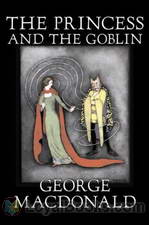 The Princess and the Goblin
The Princess and the Goblin
George MacDonald’s fairy stories and fantasy have inspired a number of writers including C.S. Lewis and J.R.R. Tolkien and of this popular fairy story, which as you might suspect concerns a little princess plotted against by a race of goblins, G.K. Chesterton said that it “made a difference to my whole existence.” | |
By: Gordon Bottomley (1874-1948) | |
|---|---|
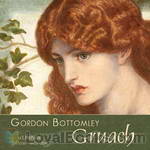 Gruach
Gruach
Gordon Bottomley's verse drama in two scenes is a prequel to Shakespeare's Macbeth. He provides Lady Macbeth with a name - Gruach - and imagines her family life and how she meets Macbeth. | |
By: Gotthold Ephraim Lessing (1729-1781) | |
|---|---|
 Miss Sara Sampson
Miss Sara Sampson
G.E. Lessing, widely regarded by students of theater as the world's first dramaturg, was also one of the first proponents of the German bourgeois tragedy. Miss Sara Sampson, in which a young woman runs off with a ne'er-do-well who is still entangled with his former mistress, was a reaction against the Voltarian verse drama popular in the eighteenth century. | |
By: Gregorio Martínez Sierra (1881-1947) | |
|---|---|
 Cradle Song
Cradle Song
"In 1911 [Martinez Sierra and his wife/co-author Maria] achieved a definitive and permanent triumph with the production of The Cradle Song.... The Cradle Song is a reminiscence of Maria's youth in Carabanchel, a town in which her father was convent doctor and where her sister took the veil, the Sister Joanna of the Cross of the play. [Martinez] has paused to probe some universal passion or emotion... in The Cradle Song, to echo the cry of the eternal mother instinct while has been stifled and denied... | |
By: Harry Clifford Fulton | |
|---|---|
 Jean Valjean; or, The Shadow of the Law
Jean Valjean; or, The Shadow of the Law
A late 19th-century stage adaptation of Victor Hugo's Les Miserables in English, The Shadow of the Law dramatizes the struggles of Hugo's legendary characters: Jean Valjean, the former convict; his relentless pursuer, Javert; Fantine, the tragic mother; her daughter Cosette; the greedy Thenardiers; the doomed revolutionaries. | |
By: Henrik Ibsen | |
|---|---|
 A Doll's House
A Doll's House
Nineteenth century attitudes towards marriage, the role of women, morality and the search for identity are brilliantly explored in Henrik Ibsen's three act play, A Doll's House. It was highly controversial and received with a sense of outrage among opinion leaders in Europe. Many thinkers like August Strindberg lashed out at Ibsen for portraying the sacred institution of marriage in such a derogatory way. A Doll's House, written in the original Danish, was first performed at the Royal Theater in Copenhagen in 1879... | |
 The Master Builder
The Master Builder
Henrik Ibsen's The Master Builder, first published in 1892, is about architect Halvard Solness, who despite personal tragedy (including the death of his two sons) has risen to the top of his profession. He has succeeded partly through ruthless competition and exploitation and partly through a seeming ability to force his will on others. His unhappy wife Aline mourns for their lost life, and resents his interest in various young women, including his bookkeeper Kaia Fosli. Solness disregards the ambitions of other architects, including Knut Brovik and his son Ragnar, and seeks solace in the advice of family physician and friend Dr... | |
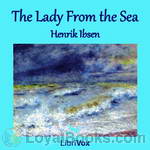 The Lady From the Sea
The Lady From the Sea
The title character in Ibsen's drama, Ellida Wangel, is married to a prosperous doctor, but feels stifled by her roles as wife and stepmother to her husband's two daughters by a previous marriage, Hilde and Bolette. Ten years earlier she had promised to marry another man - and on a sultry summer day, he comes back to her. Ellida must decide whether to choose the safety of her life with Wangel, or to yield to the siren song of the sea. | |
 Little Eyolf
Little Eyolf
Henrik Ibsen's 1894 play Little Eyolf tells the story of the Allmers family: the father, Alfred, his wife Rita, their crippled nine-year-old son Eyolf, and Alfred's sister Asta. As the play begins, Alfred has just gotten back from a trip to the mountains, and resolves to spend more time with his son, rather than on intellectual pursuits. Asta is romantically pursued by Borgheim, an engineer, while the cracks in Alfred and Rita's marriage gradually reveal themselves. The family receives a visit from the Rat-Wife, and are never the same again. | |
 The Wild Duck
The Wild Duck
The Wild Duck (1884) (original Norwegian title: Vildanden) is by many considered Ibsen's finest work, and it is certainly the most complex. It tells the story of Gregers Werle, a young man who returns to his hometown after an extended exile and is reunited with his boyhood friend Hjalmar Ekdal. Over the course of the play, the many secrets that lie behind the Ekdals' apparently happy home are revealed to Gregers, who insists on pursuing the absolute truth, or the "Summons of the Ideal". Among these truths: Gregers' father impregnated his servant Gina, then married her off to Hjalmar to legitimize the child... | |
 Rosmersholm
Rosmersholm
Rosmersholm is a play written in 1886 by Norwegian playwright Henrik Ibsen. In the estimation of many critics the piece is Ibsen’s masterwork, only equalled by The Wild Duck of 1884. As expressed by the protagonist, Rosmer, the theme of the play is social and political change, in which the traditional ruling classes relinquish their right to impose their ideals on the rest of society, but the action is entirely personal, resting on the conduct of the immoral, or amoral, “free thinking” heroine, Rebecca, who sets herself to undermine Rosmer’s religious and political beliefs because of his influential position in the community... | |
 Pillars of Society
Pillars of Society
Pillars of Society was Ibsen's first successful realist drama, first performed in 1877. Karsten Bernick is the dominant businessman in a small coastal town in Norway, with interests in shipping and shipbuilding in a long-established family firm. Now he is planning his most ambitious project yet, backing a railway which will connect the town to the main line and open a fertile valley which he has been secretly buying up. Suddenly his past explodes on him with the arrival of Lona Hessel, the woman he once jilted, and Johan Tonnesen, who left town in disgrace fifteen years earlier. | |
 John Gabriel Borkman
John Gabriel Borkman
John Gabriel Borkman is the penultimate play of the Norwegian playwright Henrik Ibsen, written in 1896. The Borkman family fortunes have been brought low by the imprisonment of John Gabriel who used his position as a bank manager to illegally speculate with his investors' money. The action of the play takes place eight years after Borkman's release when John Gabriel Borkman, Mrs. Borkman, and her twin sister Ella Rentheim battle over the future of young Erhart Borkman. Though John Gabriel Borkman... | |
 Little Eyolf (Mencken Translation)
Little Eyolf (Mencken Translation)
One of the four profound plays of Ibsen’s late period (along with “The Master Builder,” “John Gabriel Borkman,” and “When We Dead Awaken”), “Little Eyolf” tells the story of Albert Allmers, a writer who has yearned to leave behind a literary or philosophical legacy of some kind, but who finally decides to invest that yearning in the life of his little handicapped son, Eyolf. Rita Allmers loves her husband so obsessively that she hates any rival for his affection, whether it be Allmer’s literary magnum opus, Little Eyolf himself, or Albert’s strangely devoted sister Asta... | |
By: Henry Fielding (1707-1754) | |
|---|---|
 An Apology for the Life of Mrs. Shamela Andrews
An Apology for the Life of Mrs. Shamela Andrews
An Apology for the Life of Mrs. Shamela Andrews, or simply Shamela, as it is more commonly known, is a satirical novel written by Henry Fielding and first published in April 1741 under the name of Mr. Conny Keyber. Fielding never owned to writing the work, but it is widely considered to be his. It is a direct attack on the then-popular novel Pamela (November 1740) by Fielding's contemporary and rival Samuel Richardson and is composed, like Pamela, in epistolary form. Shamela is written as a shocking revelation of the true events which took place in the life of Pamela Andrews, the main heroine of Pamela... | |
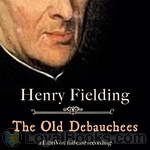 The Old Debauchees
The Old Debauchees
Young Laroon plans to marry Isabel, but Father Martin manipulates Isabel's father, Jourdain, in order to seduce Isabel. However, other characters, including both of the Laroons, try to manipulate Jourdain for their own ends; they accomplish it through disguising themselves as priests and using his guilt to convince him of what they say. As Father Martin pursues Isabel, she is clever enough to realize what is happening and plans her own trap. After catching him and exposing his lust, Father Martin is set to be punished. | |
By: Henry James (1843-1916) | |
|---|---|
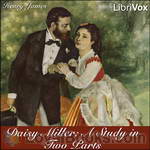 Daisy Miller: A Study in Two Parts
Daisy Miller: A Study in Two Parts
Daisy Miller is an 1878 novella by Henry James. It portrays the confused courtship of the eponymous American girl by Winterbourne, a compatriot of hers with much more sophistication. His pursuit of her is hampered by her own flirtatiousness, which is frowned upon by the other expatriates they meet in Switzerland and Italy. Her lack of understanding of the social mores of the society she so desperately wishes to enter ultimately leads to tragedy. | |
By: Henry Lawson (1867-1922) | |
|---|---|
 Dramatic Selections from Henry Lawson's Short Stories
Dramatic Selections from Henry Lawson's Short Stories
01. That Pretty Girl in the ArmyThe Salvation Army is having a hard time of things in the rough Outback town of Bourke. That is, until Sister Hannah arrives... - Summary by Son of the Exiles Coordinated by: Son of the Exiles Sister Hannah: Devorah Allen Jack Moonlight: Tomas Peter Billy Woods: Jim Locke Jake Boreham: Larry Wilson Reformed Drunkard: Wayne Cooke Bob Brothers: Algy Pug Mitchell: Alan Mapstone Donald Macdonald: Michele Eaton One-Eyed Bogan: lorda Female Testifier: Lauren-Emma Blake Blunderer: Therese Lindholm Black Testifier: Wayne Cooke Heckler: ToddHW Narrator: KHand 02... | |
By: Hesba Stretton (1832-1911) | |
|---|---|
 Jessica's First Prayer and Jessica's Mother
Jessica's First Prayer and Jessica's Mother
Jessica is a little girl who used to be an actress till she grew too big. Now she lives on the streets, mostly starving until she meets Mr. Dan'el. Mr. Dan'el gives Jessica his cast-off crusts and warmed-over coffee. Jessica follows Mr. Dan'el to a building where a bunch of people sing and then listen to a man tell them about someone named God. Jessica wants to know who God is so she sneaks into listen every Sunday, hoping she won't be found out. | |
By: Homer Greene (1853-1940) | |
|---|---|
 Blind Brother (Version 2 Dramatic Reading)
Blind Brother (Version 2 Dramatic Reading)
A story of repentance and forgiveness set in the times of the the coal mines. Follow a blind boy and his brother determined to get him cured but also determined to live up to a moral code even if that mean years of blindness for Benny. See self sacrifice and family togetherness in this classic tale. - Summary by Luke Castle Cast List Narrator: Sky AsimaruDoctor: lordaJack: Andrew JamesBennie, Judge: larryhayes7Lawyer Pleadwell: Adam BielkaTom: NavinSandy: RockyOctopusDistrict Attorney, Lawyer Summons: Alan MapstoneRandom Testifying Guy, Sheriff: Michael LMicheal Carolann, Irishman: Wayne CookeCourt Clerk, Little Fellow: ambsweet13Mother: LilyLewis G... | |
By: Hugh Lofting (1886-1947) | |
|---|---|
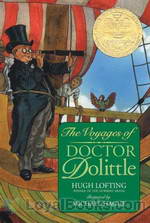 The Voyages of Doctor Dolittle
The Voyages of Doctor Dolittle
The delightfully eccentric Doctor Dolittle, rendered immortal on screen by the gifted Rex Harrison, has remained a firm favorite with generations of children ever since he made his debut in an earlier novel, The Story of Doctor Dolittle. In his second outing titledThe Voyages of Doctor Dolittle, the maverick physician takes on a new assistant, Tommy Stubbins. The story is structured as a first person account given by Tommy, who is now a very old man. The boy who was the son of the village cobbler first meets Doctor Dolittle when he takes a hurt squirrel to the doctor for treatment... | |
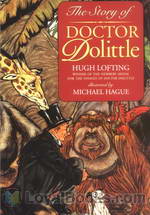 The Story of Doctor Dolittle
The Story of Doctor Dolittle
An adventurous children’s novel, The Story of Doctor Dolittle is the first book in the Doctor Dolittle series. The novel depicts the many adventures of Dr. John Dolittle as he learns the language of animals and takes on various feats including exotic travel, a dangerous encounter with pirates, and a mission to set right from wrong. The novel begins with the introduction of Dr. John Dolittle, an animal lover and respected physician, who lives in the small English town of Puddleby-on-the-Marsh with his unmarried sister... | |
 Doctor Dolittle's Post Office (version 2) (dramatic reading)
Doctor Dolittle's Post Office (version 2) (dramatic reading)
While working in Africa, the eminent naturalist John Dolittle sets out to create the best post office on earth, using his bird friends to carry messages and packages anywhere in the world in record time. Along the way, he also manages to foil a slave trader, enrich a kingdom, save a ship, and meet the oldest living creature on earth! - Summary by Devorah Allen Cast: Doctor Dolittle: ToddHWSpeedy the Swallow: TJ BurnsDab-Dab the Duck: Leanne YauJip the Dog: Rafe BallGub-Gub the Pig: Campbell SchelpThe... | |
By: Hyakuzō Kurata (1891-1943) | |
|---|---|
 Priest and His Disciples (Shaw Translation)
Priest and His Disciples (Shaw Translation)
At the age of twenty-six (at the height of the Great War in Europe), the religious pilgrim and maverick Kurata Hyakuzō wrote a profoundly philosophical play called "The Priest & His Disciples" ("Shukke to sono deshi"). This stage play is based on the life and teachings of the 13th century Buddhist priest Shinran (1173-1263) and quickly became immensely popular. Shinran, the historical founder of the True Pure Land School of Buddhism (Jōdo Shinshū), encounters the poor family of Hino Saemon and his wife Okane, and converses with them about how to live in circumstances of change and turmoil and hardship... | |
By: J. M. Barrie (1860-1937) | |
|---|---|
 Peter Pan
Peter Pan
His name has become a metaphor for one who will never grow old. Peter Pan by JM Barrie is the story of a boy who remains a boy while the world around him changes. Sir James Mathew Barrie was a Scottish playwright and novelist whose works were received with great critical and commercial success in the late nineteenth and early twentieth century. He discovered the main inspiration for his creative genius in his friendship (and later guardianship) with the children of Arthur and Sylvia Llewellyn-Davies... | |
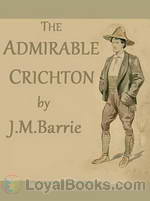 The Admirable Crichton
The Admirable Crichton
From the author of Peter Pan:Lord Loam, a British peer, considers class divisions to be artificial. He promotes his views during tea-parties where servants mingle with his aristocratic guests, to the embarrassment of all. Crichton, his butler, particularly disapproves of this.Loam, his family, a maid, and Crichton are shipwrecked on a deserted tropical island. The resourceful Crichton is the only one of the party with any practical knowledge. Eventually, social roles are reversed, and Crichton becomes the governor. | |
 Dear Brutus
Dear Brutus
At a house in the country 8 guests are invited to enter a magical wood to see what might have happened had they made a different choice in life. Even though they are warned away from the wood, they take a chance and enter. The title comes from Shakespeare: "The fault lies in our selves, dear Brutus, not in our stars...," and summarizes the theme of this play: given a second chance, will people still make the same mistakes? | |